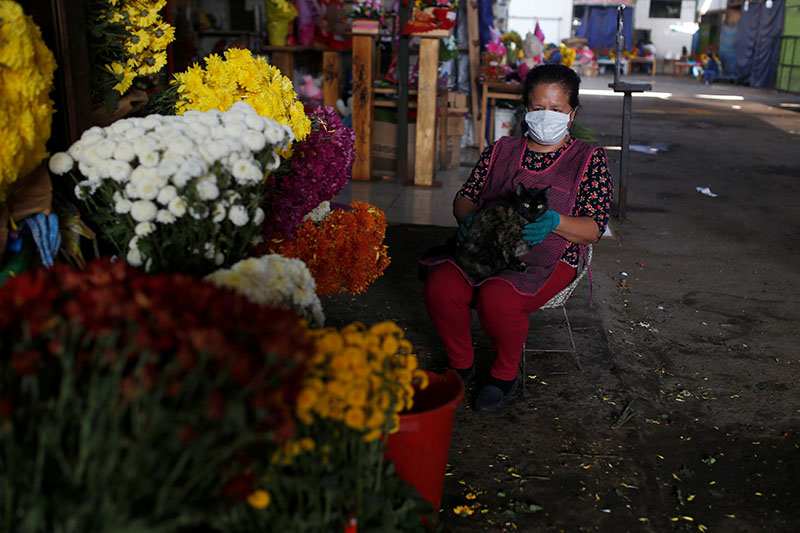Flowers via a stranger: Chileans compromise on Mother`s Day cemetery visits
SANTIAGO: Every year for the past 20, Rosa Maria Fuenzalida has visited her mother's grave on Mother's Day without fail in the central Chilean city of Curico.
She is one of millions of people in Latin America, where family is its own religion, who flock to take floral offerings to the cemeteries where their mothers and grandmothers are buried to show they are not forgotten.
This year though, with Chileans self-isolating as the new coronavirus spreads around the country, Rosa Maria relied on a stranger to take flowers to her mother's grave.
Burial places throughout Chile announced to widespread dismay that they would not open on Mother's Day. But Curico's general cemetery, which ordinarily would have 15,000 visitors on Mother's Day, offered a compromise.
For three days in the run-up to Sunday, it invited visitors to bring their flowers to the front gate on different days, according to the letters of their surnames, for the bouquets to be delivered for them to their loved ones' final resting place.
Those leaving bouquets said they received a Whatsapp message shortly afterward with a photograph of the flowers in place, with a note assuring them they had fresh water.
Texas nurse expecting Mother's Day baby makes tough choices over virus fears
Samantha Salinas never planned to give birth during a global pandemic, but Mother's Day 2020 may be when her baby finally arrives.
The 33-year-old nurse, whose second child is due on Friday, said she had worked through her first pregnancy with ease in San Antonio, Texas. But news that COVID-19 patients were checking into her intensive care unit in April prompted her to make some changes.
"I called in to say I'm not coming," Salinas said. "It's distressing being pregnant. You always think who's sick around you. What worries me is there's so much unknown. So many people can be carriers and asymptomatic. That's a huge blind spot."
The hospital reassigned her to a part-time job in another building doing patient follow-ups by phone. The fewer work hours reduced her income, but safety was her priority.
"The vertical transmission was what I was afraid of, not so much my getting sick, but the baby getting sick," Salinas said.
Salinas wants to continue working as late as possible into her pregnancy so she can spend more of the time off she is entitled to with her newborn.
Australia's biggest states retain lockdown measures on Mother's Day
The premiers of New South Wales (NSW) and Victoria said the states' roughly 14 million residents, 56% of the country's population, would have to stick to existing restrictions on movement on Mother's Day, which is celebrated nationally on Sunday.
"Whilst national cabinet is considering easing some restrictions from Friday in terms of the national guidelines, I doubt very much that NSW will be in a position to implement anything before Mother's Day," NSW Premier Gladys Berejiklian told reporters on Thursday.
Belgium to open shops and allow Mother's Day meetings
The country of 11.5 million people, among the European nations worst hit by the COVID-19 pandemic, began easing lockdown restrictions at the start of this week, allowing businesses that do not have contact with consumers to restart.
Belgium, whose capital Brussels hosts the headquarters of the European Union and the NATO military alliance, has 50,781 confirmed cases of COVID-19 and 8,339 deaths. However, the rate of new cases, hospital admissions and deaths has fallen steadily from early April peaks.
From Sunday, Mother's Day, Belgian families will be able to host up to four people, and always the same people, at their homes while respecting a social distance. Ideally, this would be outside, such as in a garden or on a terrace.
"I recognise this does not replace the pleasure of being able to embrace someone you love, but we cannot do more for the time being," Wilmes told a news conference.






